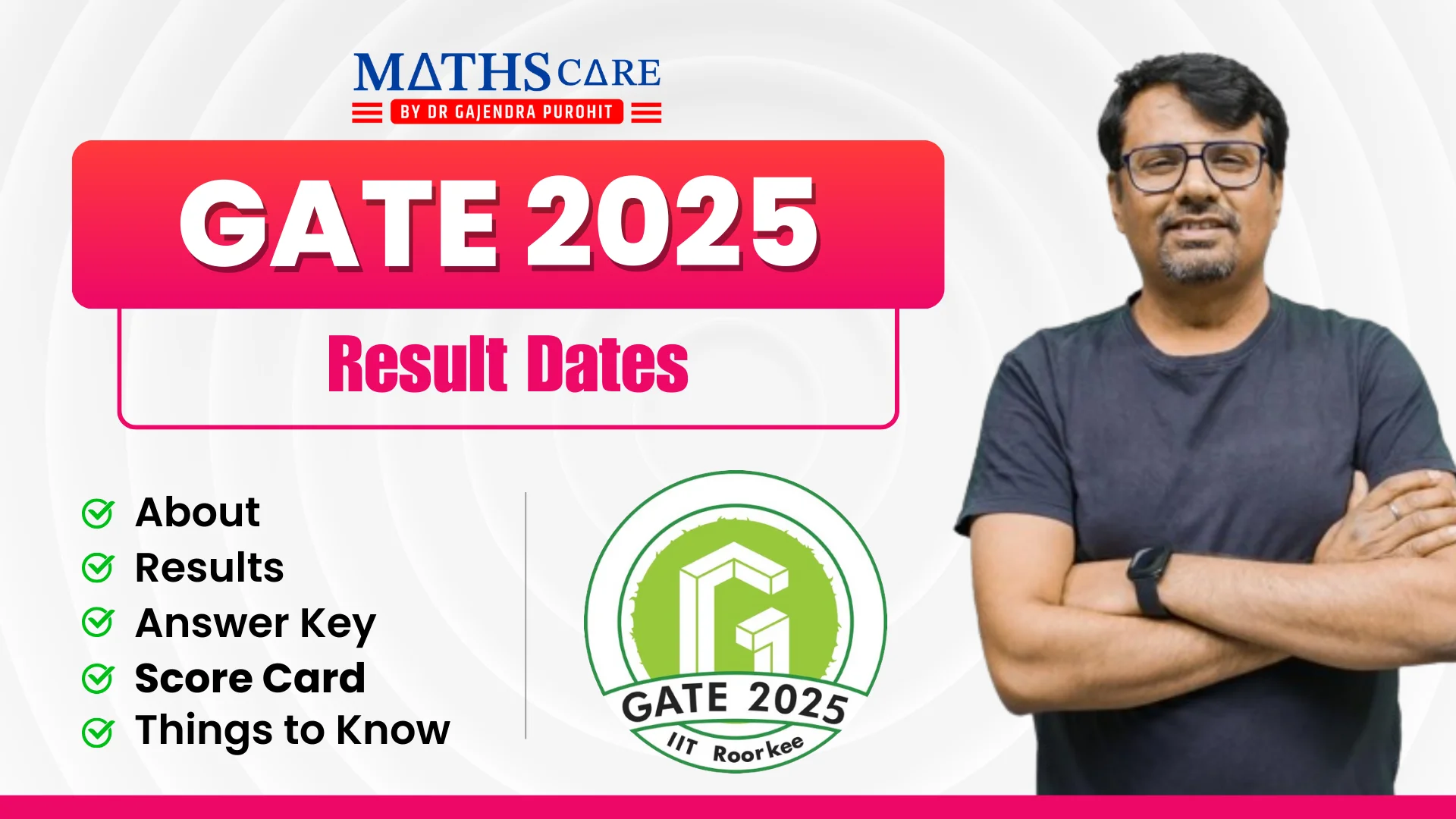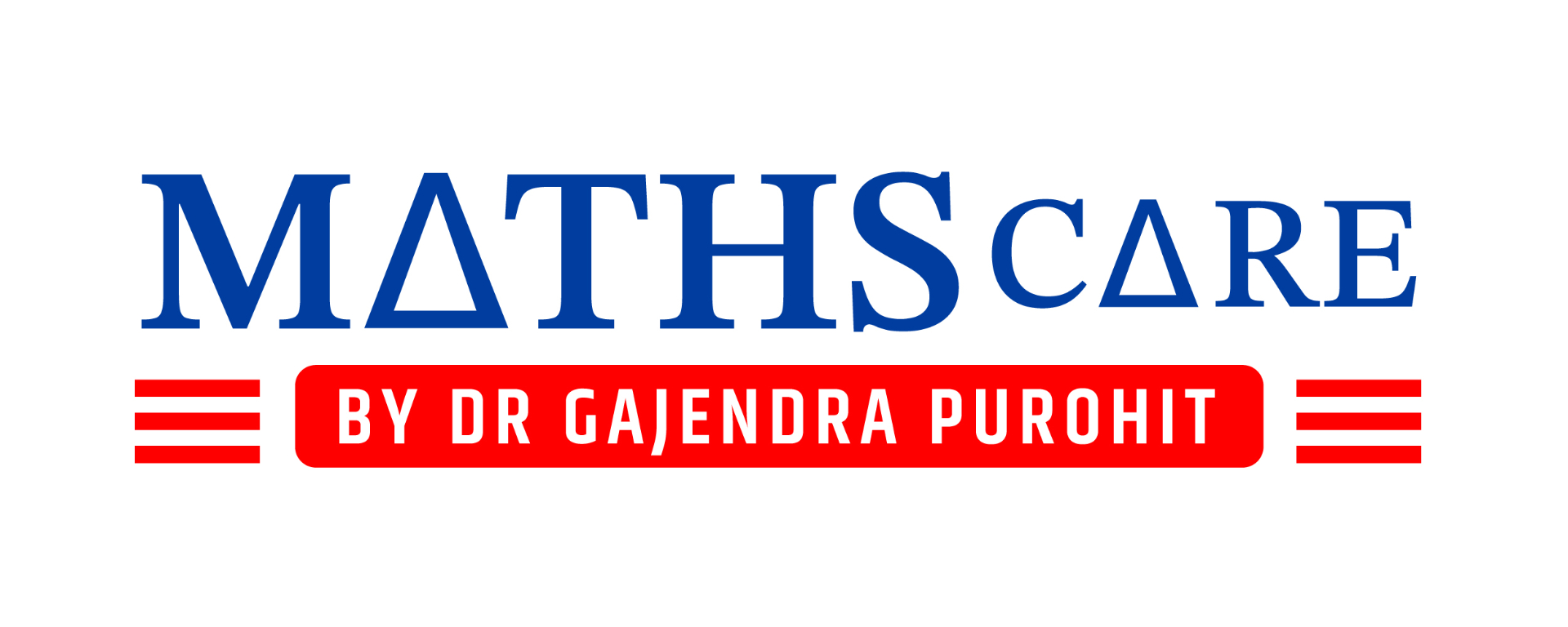GATE Exam 2025: Engineering Mathematics
The Graduate Aptitude Test in Engineering (GATE) is one of India’s most prestigious exams for engineering graduates, providing opportunities for admission to postgraduate programs and offering lucrative job prospects in Public Sector Undertakings (PSUs). One of the most crucial components of the GATE exam is Engineering Mathematics, a subject that carries significant weightage across various engineering disciplines. Given its importance, it’s essential to understand the exam pattern, syllabus, and preparation strategies to maximize your chances of success in GATE 2025. This comprehensive guide will provide you with all the essential information to help you navigate the Engineering Mathematics paper of GATE 2025.

GATE Exam 2025 Important Dates
To start your GATE 2025 journey on the right foot, it is important to track key dates related to the exam. Here’s the timeline for the GATE 2025 exam:
Opening of Online Application (GOAPS): August 28, 2024
Regular Registration Deadline: October 3, 2024
Extended Registration Deadline (with late fee): October 11, 2024
Admit Card Availability: January 3, 2025
Exam Dates: February 1, 2, 15, and 16, 2025
Result Announcement: March 16, 2025
Mark these dates on your calendar to ensure you don’t miss any important deadlines.
GATE Exam Syllabus Engineering Mathematics
The Engineering Mathematics syllabus for GATE is extensive and covers a range of topics, each of which plays a significant role in the exam. Here is a detailed breakdown of the syllabus:
Linear Algebra
Topics: Matrix algebra, systems of linear equations, determinants, eigenvalues, and eigenvectors.
Relevance: A significant portion of marks is allocated to this topic. Focus on solving linear equations and matrix properties.
Calculus
Topics: Differentiation, integration, limits, maxima and minima, and partial derivatives.
Relevance: Calculus is a cornerstone of engineering mathematics, and understanding its principles is crucial for solving real-world problems.
Differential Equations
Topics: First-order differential equations, higher-order linear differential equations, and applications.
Relevance: This topic is widely tested and essential for understanding the behavior of dynamic systems in engineering.
Vector Calculus
Topics: Gradient, divergence, curl, line integrals, surface integrals, and Green’s theorem.
Relevance: This topic plays an important role in fields like fluid dynamics and electromagnetism.
Complex Variables
Topics: Analytic functions, Cauchy-Riemann equations, residue theorem, and contour integration.
Relevance: Key to solving complex integrals and understanding the behavior of systems in complex domains.
Probability and Statistics
Topics: Probability distributions, random variables, mean, variance, and standard deviation.
Relevance: Understanding probability is critical for data analysis and machine learning-related fields.
Numerical Methods
Topics: Numerical solutions of linear and nonlinear equations, interpolation, numerical differentiation.
Relevance: This section tests practical problem-solving skills using algorithms and computational methods.
Discrete Mathematics
Topics: Sets, relations, graphs, combinatorics, and logic.
Relevance: Especially relevant for computer science aspirants, as it forms the backbone of algorithmic thinking.
Each of these topics plays a pivotal role in the GATE exam, and a comprehensive understanding is essential for scoring well.
GATE Exam Topic-wise Weightage Analysis
Understanding how each topic is weighted in the exam can help you strategize your preparation. Based on historical data, here’s an overview of the topic-wise weightage for Engineering Mathematics in previous years:Linear Algebra: In the 2024 GATE exam, Linear Algebra carried 16 marks, showing a slight increase from the 15 marks in 2023. In 2022, this topic had a higher weightage of 18 marks, while in 2021, it contributed 13 marks. This indicates that Linear Algebra is a consistently important topic, maintaining a relatively stable presence in the exam over the years, with occasional fluctuations in the mark distribution.
Calculus: The marks allotted to Calculus in the GATE exam saw some variation in recent years. In 2024, it was worth 7 marks, which is significantly lower than the 14 marks it received in 2023 and 2021. In 2022, the weightage was 15 marks. This topic, which covers differentiation, integration, maxima, and minima, has been a significant part of the syllabus, but its weightage has fluctuated in recent years, with 2024 marking the lowest allocation in the last four years.
Differential Equations: In the 2024 exam, Differential Equations carried 10 marks, a slight drop compared to 12 marks in 2023. However, the weightage was 8 marks in both 2022 and 2021, showing some consistency in its importance. This topic, involving first-order and higher-order differential equations, continues to play a pivotal role in the GATE syllabus, though its mark distribution has seen moderate variation.
Vector Calculus: Vector Calculus was allotted 6 marks in the 2024 exam, maintaining a consistent mark allocation similar to 2021. However, there was a significant rise in 2023, with 14 marks assigned to this topic, making it one of the highest-weighted sections that year. In 2022, the topic had a mark allocation of just 5, reflecting the inconsistency in its prominence across the years. Nevertheless, its importance as a fundamental mathematical tool for engineering subjects is undeniable.
Complex Variables: In the 2024 GATE exam, Complex Variables contributed 5 marks, which is in line with its contribution in 2022 and 2021. In 2023, this topic received 6 marks, showing a small increase. Despite its relative consistency, Complex Variables remains a moderately weighted topic across the years, with a slight tendency to fluctuate depending on the overall exam pattern.
Numerical Methods: Numerical Methods, which involves solving linear and nonlinear equations, interpolation, and numerical differentiation, saw a noticeable change in mark distribution. In 2024, it contributed 9 marks, which is a significant increase compared to the 4 marks in 2023. This topic had 5 marks in 2022 and 8 marks in 2021. The rise in 2024 reflects the growing importance of computational methods in engineering, which have become integral to modern problem-solving techniques.
Probability & Statistics: The weightage for Probability & Statistics was 8 marks in 2024, an increase from the 6 marks in 2023. This topic saw a drop to 4 marks in 2022, but it had a considerable weightage of 13 marks in 2021, the highest among the years listed. The fluctuation in its marks shows that, while important, the focus on Probability & Statistics can vary from year to year, depending on the overall exam trend and the specific focus of the syllabus.
Discrete Mathematics: Discrete Mathematics had a steady allocation of 5 marks in 2024, consistent with its contribution in 2021 and 2022. In 2023, it contributed 4 marks, showing a slight decrease in its importance. Discrete Mathematics, which is especially relevant for computer science aspirants, covers topics like logic, sets, relations, graphs, and combinatorics. Its consistent presence over the years indicates its enduring significance, particularly for those pursuing technical and computational fields.
Linear Algebra and Differential Equations consistently dominate the section in terms of marks, while Probability and Statistics and Numerical Methods have gained prominence in recent years.
GATE Exam Preparation Strategy for Engineering Mathematics
Start Early
Begin your preparation with Engineering Mathematics as it lays the groundwork for other subjects. Starting early ensures you have ample time to master key concepts and tackle complex problems.
Understand the Syllabus Thoroughly
Break down the syllabus into manageable sections. Prioritize high-weightage topics like Linear Algebra and Differential Equations while keeping a balanced approach towards other topics.
Solve Previous Year Papers (PYQs)
Previous year question papers offer insight into the type of questions asked, allowing you to gauge the difficulty level and the frequency of certain topics. Regular practice will help you improve your time management skills.
Schedule Regular Revisions
Revise regularly to ensure that concepts and formulas are committed to memory. Scheduled revisions help retain complex problem-solving techniques.
Practice Mock Tests
Taking mock tests simulates exam conditions and allows you to assess your progress. After each test, analyze your performance to identify areas that need improvement.
Use Standard Study Materials
GATE Exam Eligibility Criteria
To appear for GATE 2025, candidates must meet the following eligibility criteria:
Educational Qualification: A Bachelor’s degree (3rd year or higher) in Engineering, Technology, Architecture, Science, or related fields.
International Candidates: Must have completed or be in the third year of a Bachelor’s degree program.
Professional Society Examinations: Equivalent qualifications like AMIE or AMICE are accepted.
No Age Limit: GATE does not impose an age limit, and there are no restrictions on the number of attempts.
GATE Exam Financial Aid Opportunities
For students pursuing M.Tech or Ph.D. programs, GATE offers substantial financial aid:
M.Tech Students: ₹12,400 per month for up to 22 months.
Ph.D. Students: ₹37,000 per month initially, increasing to ₹42,000 per month after two years.
GATE Career Opportunities
A good GATE score opens numerous career opportunities, including:
Postgraduate Admissions: For M.Tech and Ph.D. programs at top institutions like IITs, IISc, and NITs.
Public Sector Jobs: Recruitment in PSUs like ONGC, GAIL, and BHEL.
Private Sector: Top MNCs prefer GATE-qualified candidates for research and development roles.
Academic Careers: A GATE score is a prerequisite for teaching positions at engineering colleges.
Conclusion
The GATE 2025 exam is your gateway to further academic pursuits and career advancement. With consistent effort, the right resources, and a strategic approach, you can excel in the Engineering Mathematics section. Start your preparation early, follow the outlined strategies, and stay focused on your goal of achieving a top rank in the GATE exam.
GATE FAQS
Do I need to mail a printout of the GATE application form?
No, the printout is only for your reference.
How can I check my application status?
Log in to the GATE portal regularly to check your status.
Can I modify my application after submitting it?
No, once you generate the PDF, changes are not allowed.
Is GATE 2025 conducted at international centers?
No, GATE 2025 is only conducted at centers in India. Foreign nationals must choose exam centers within India.
What if my internet fails during online payment?
Log in and check the payment status. If unsuccessful, initiate a fresh payment.
My account was debited twice. How do I get a refund?
Multiple payments will automatically be refunded to the same account, though it may take up to a week.
BEST OFFERING COURSES FOR YOU
BEST BOOKS FOR IIT JAM/ CSIR-NET
BUY BOOKS ON OUR APP
RECENT POSTS

GATE Career Opportunities (Updates)

GATE 2025 Financial Assistance









